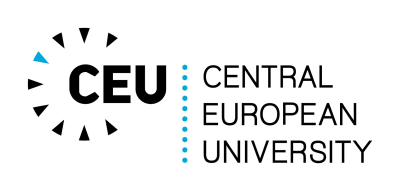We offer one of the most generous and accessible scholarship schemes, available to candidates from any country, ranging from tuition awards to stipends.
To Bachelor's Candidates, we offer financial support opportunities,
Bachelor's
CEU enjoys the support of generous donors, including our alumni, who support talented students with scholarships and awards. Here you’ll find information about these opportunities and how to apply.
- Partial Tuition Award
- Presidential Scholar Award
- External financial support and scholarship opportunities
Partial Tuition Award
A small number of Partial Tuition Awards are available for outstanding applicants to the BA/BSc in Data Science and Society, BA in Culture, Politics and Society, and BA in Philosophy, Politics, and Economics programs.
Details
This is a merit-based award, which may fund up to 50% of the tuition fee (up to €3,500 per academic year).
Application
Applicants who want to be considered for this award must apply by February 1, 2024.
Presidential Scholar Award
Two outstanding candidates will receive a Presidential Scholar Award with a total value of €5,000 each. The Presidential Scholars Fund was established by CEU President and Rector Michael Ignatieff and his wife Zsuzsanna Zsohar to support students who demonstrate exceptional academic credentials and leadership promise.
Details
The Award covers part of the tuition fee throughout the four years of BA studies as follows:
- Year 1: €500
- Year 2: €1,000
- Year 3: €1,500
- Year 4: €2,000
Application
All applications submitted by February 1, 2024, will be automatically considered for this award. There is no need to submit a separate application or indicate your interest in this award in the CEU Application Form ('Funding' section).
External Financial Support Opportunities
You can find information about some of the opportunities from governments and other funders here. Please note that this list is by no means comprehensive. Be sure to check the eligibility requirements before applying.
Master’s
To master’s candidates, we award financial aid based on academic merit. You can apply for financial support for master’s studies in the Funding section of the Online Application Form.
Are you applying for one of our PhD programs? We will automatically consider you for the CEU Doctoral Scholarship.
Doctoral Scholarship.
CEU has an international reputation for high-quality postgraduate education delivered in a research-led environment. In pursuit of our mission, we strive to attract the very best graduates worldwide for our doctoral program. Candidates who apply by the financial aid deadline are automatically considered for the CEU Doctoral Scholarship, covering the full cost of tuition, complete with a monthly stipend to assist with housing and living costs.
Doctoral Stipend - 1,680 EUR/gross/month (=1,350 EUR/net/month for students who have no other taxable income)*
*PhD stipends are taxable in Austria. PhD students are considered new self-employed individuals in Austria, and they have to file their own taxes and register at the national SVS insurance provider.

